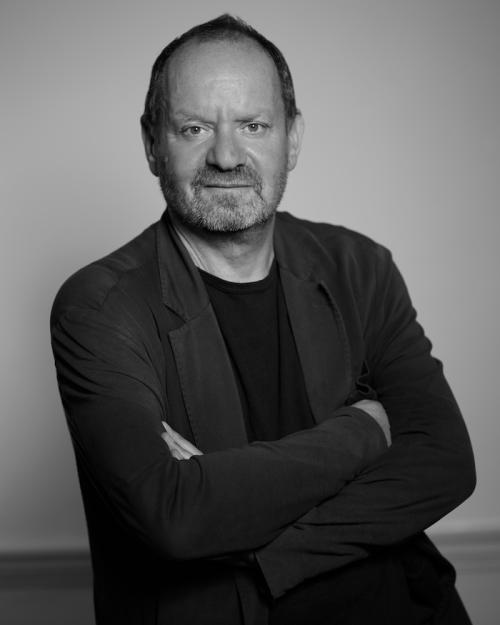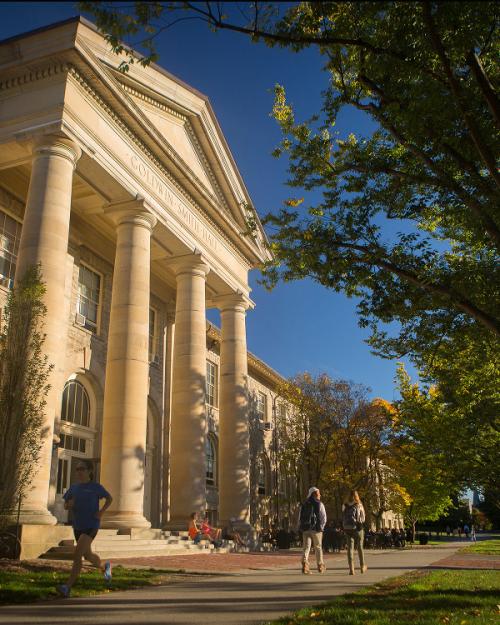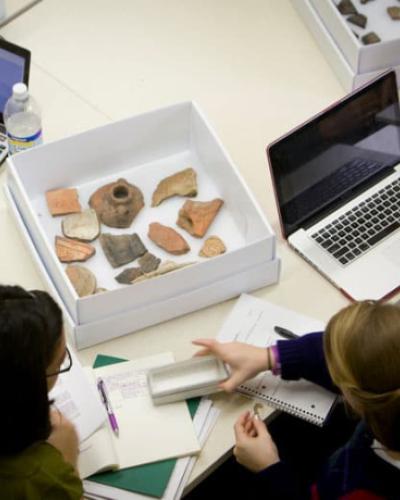Close to 300 faculty, staff and students are participating in the College of Arts & Sciences discussion about its core curriculum and graduation requirements. Numerous focus groups and meetings, held since August, reflect the college community’s ongoing discussion of the purpose an A&S education and the graduation requirements supporting that mission.
Faculty and student participants — who represent the broad array of A&S disciplines in the humanities, arts, social sciences, sciences and math — are engaging in robust and creative discussions exploring the basic principles of a liberal education, the core curriculum, and the college’s educational mission.
"Both students and faculty have been very active and responsive to the curriculum discussion. The creativity emerging in discussions is exciting and is helping the entire college community think about graduation requirements in a meaningful and purposeful way," says Laura Brown, the John Wendell Anderson Professor of English and co-chair of the College Curriculum Committee.
Students and faculty are questioning a wide range of topics and philosophies, including:
- Undergraduate education: as a time for challenging thinking and exploring diverse opinions.
- Use of distribution requirements - or a menu - to foster discovery of new interests.
- Value of a common, or shared, academic experience to build college culture and cohesiveness.
- Role of cross-disciplinary teaching and learning from lower to upper division courses.
- Preparation for life and work beyond Cornell: pragmatics of a career balanced with deep intellectual and personal skills that will be lifelong.
- Diversity: of the student population, of students’ goals, of disciplines, of types of inquiry and methods of thinking.
- Importance of departments in directing learning in the majors balanced with faculty's value for breadth of learning across the humanities, natural sciences, and the social sciences.
- Role of curriculum in building student global understanding and cultural competence.
- Role of curriculum in building skills in visual, written and oral expression across languages and modes of communication.
The Curriculum Committee, led by Brown, has engaged with faculty through focus groups or department meetings on 12 separate occasions this semester. The committee has also supported three student meetings, two of those student-conceived and led, with three more scheduled on campus and in the residence halls in the coming month.
A group of faculty departmental liaisons, convening to support the curriculum committee and with representation from every department and program, has just drafted “Principles of a Liberal Education,” a document designed to support continued discussion about how faculty understand the college's mission.
The principles document asks students to "claim their education" in Arts & Sciences, stating that the “... curriculum should be transformative: students who enter as consumers of information should leave as producers of knowledge. Graduates should be critical and inquisitive readers; capable writers; thinkers who can examine and reason from evidence and embark on challenging paths of inquiry.” The curriculum committee asks members of the A&S community to review these ideas and to provide direct feedback.
Along with ongoing faculty meetings and faculty and student focus groups, the committee welcomes feedback and ideas through a website that serves as a hub for communications throughout the process. Students, faculty, staff and alumni can submit suggestions and feedback directly and can view the responses that have already been submitted. In addition, students should contact Jenna Nam or Gauri Misra, the co-chairs of the Dean’s Student Advisory Council, or Leighton Cook or Madeline Gerrick, student members of the College Curriculum committee, to learn about student meetings or to submit input. Faculty may interact with their department’s or program’s liaison to learn more about the ongoing discussions.
In the coming month, the curriculum committee will circulate a set of “evolving scenarios” that include core topics from fall semester discussions and seek to include the input of faculty, students and alumni so far.
Along with Brown, Curriculum Committee members include Peter Lepage (Physics), ex officio; Gerard Aching (Africana Studies & Romance Studies); Anindita Banerjee (Comparative Literature); Claire Cardie (Information Science & Computer Science); Derek Chang (History & Asian-American Studies); Leighton Cook (student); Brian Crane (Chemistry); Melissa Ferguson (Psychology); Madeline Gerrick (student); Kelly Liu (Molecular BIology & Genetics); Tom Pepinsky (Government); Ravi Ramakrishna (Mathematics), Kim Weeden (Sociology) and Nathan Weierich (student).






